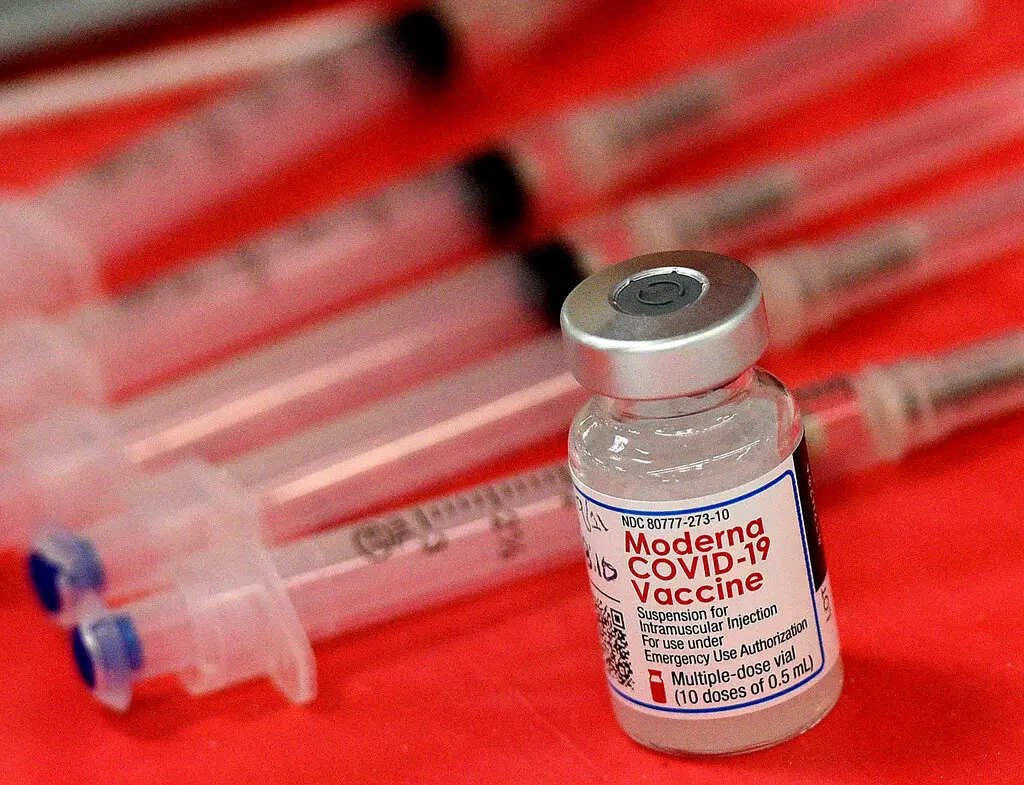Moderna said Thursday that it had asked the Food and Drug Administration to authorize its coronavirus vaccine for children under 6, making it the first manufacturer to do so.
A top official said the firm would finish submitting data to regulators by May 9.
The development, which was expected, could intensify pressure on federal regulators to authorize a vaccine for the nation’s youngest children. Parents of the roughly 18 million youngest Americans, the only population group not yet eligible for vaccination, have been waiting for months for pediatric doses
So far, Moderna’s vaccine has been cleared only for adults. The FDA has generally authorized Covid vaccines according to age group, calculating that the risks of severe disease and the benefits of vaccination are highest for the oldest Americans and reduced for young recipients.
Moderna has also requested authorization of its Covid vaccine for 6- to 11-year-olds and 12- to 17-year-olds, and a spokeswoman said that it would submit data rounding out those requests in about two weeks.
At a Senate oversight hearing on Tuesday, Dr. Peter Marks, who oversees vaccine regulation for the FDA, hinted that the agency might consider Moderna’s applications for everyone under 18 as a whole. Some requests “are complicated because they are relatively larger, covering larger swaths of the pediatric population than others,” he said in response to a senator’s question about when a pediatric vaccine would be ready.
Moderna and Pfizer-BioNTech have both been developing doses for the youngest children since last year. Moderna is proposing a two-dose regimen for children from 6 months to 5 years old, using one-fourth the strength of an adult dose.
Pfizer and BioNTech are working on a three-dose regimen for those 6 months to 4-years-old, at one-tenth the strength of the adult dose. Pfizer has not yet submitted a request for FDA authorisation, but is expected to do so soon.
Most applications for coronavirus vaccines have been rolling submissions, with the FDA sometimes previewing data even before receiving a formal request.
In an interview last week, Dr. Anthony S. Fauci, the chief medical adviser to the White House, suggested that the FDA wants to review the data for Moderna and Pfizer simultaneously in order to directly compare the merits of each vaccine for the youngest children and not “confuse people.”
Dr. Paul Burton, Moderna’s chief medical officer, previously said that he expected the FDA to consider Moderna’s vaccine for all three age groups under 18 in one fell swoop. But in an interview Wednesday, he said that “there is an unmet medical need” for the youngest children, adding that he hopes the FDA will “carefully and appropriately assess the data and not hold it up.”
Moderna’s clinical trial data showed that the antibody response of the youngest children compared favorably with that of adults ages 18 to 25, meeting the trial’s primary criterion for success.
Although the trial was not big enough to measure vaccine effectiveness, Moderna said Thursday the vaccine appeared to be 51 percent effective against symptomatic infection among those younger than 2, and 37 percent effective among those 2 to 5.
Those results were slightly better than the ones Moderna previously released for children under 2. The company said that was because the second time, the firm excluded infections that had not been confirmed with a P.C.R. test analyzed in a laboratory.
Dr. Burton said the new results came from a more rigorous analysis, but did not differ significantly from the earlier ones. He said the Omicron variant, which proved adept at skirting the body’s first line of defense, accounted for about 80 percent of infections in the study group. That, he said, explains the low efficacy rate compared with earlier vaccine trials.
It appears unlikely that regulators will act on Moderna’s application before June. Federal officials have said they will ask the agency’s outside advisory panel of experts to review the data before authorizing any vaccine for the youngest children. Meetings of the panel that were tentatively scheduled for May have been moved to June.
Dr. Sean O’Leary, an infectious disease specialist at Children’s Hospital Colorado, said, “There are a lot of parents who really desperately want a vaccine for a lot of good reasons. And we’re almost there.”
“I think these children need a vaccine,” he said. “On the other hand, I also recognize that it’s a complex situation” for the FDA
Dr. O’Leary also serves as vice-chairman of the infectious disease committee of the American Academy of Pediatrics.
Latest Stories
-
From Morocco to Botswana – Africans turn to trusted media and experts for climate change information
28 minutes -
Mahama announces Labour Export Programme
33 minutes -
Prof. Peter Atudiwe Atupare appointed Dean of University of Ghana School of Law
50 minutes -
Goldbod is already doing wonders – Mahama praises CEO Sammy Gyamfi
2 hours -
Mahama promises attractive cocoa price in August, pledges 200,000 hectare boost to sector
2 hours -
UHAS Council Chairman Prof. Kodzo Gavua urges graduates to serve with passion, integrity, and innovation
3 hours -
Dr. Charisa Ogbogbo becomes first female professor in Mathematical Sciences at UG
3 hours -
Communication Ministry assures data price cuts as TELCOS prepare to reduce costs soon
3 hours -
Fans battle it out in FIFA, Basketball, and Gala at Hitz FM’s ‘Rep Ur Jersey’
3 hours -
Suspended CJ’s affidavit facetious and unnecessary – Dafeamekpor
4 hours -
Dafeamekpor, Kabila clash over past comments on Woyome case and Wontumi arrest
5 hours -
Give schools power to dismiss violent students – EduWatch urges as indiscipline rises
5 hours -
Excitement peaks at Hitz FM’s ‘Rep Ur Jersey’ ahead of UCL final at Aviation Social Centre
5 hours -
2025 Unity Cup: Black Stars hammer Trinidad and Tobago to finish third
5 hours -
Mid-air turnaround of OP122 flight was due to technical issue, not fuel shortage – PassionAir clarifies
5 hours

